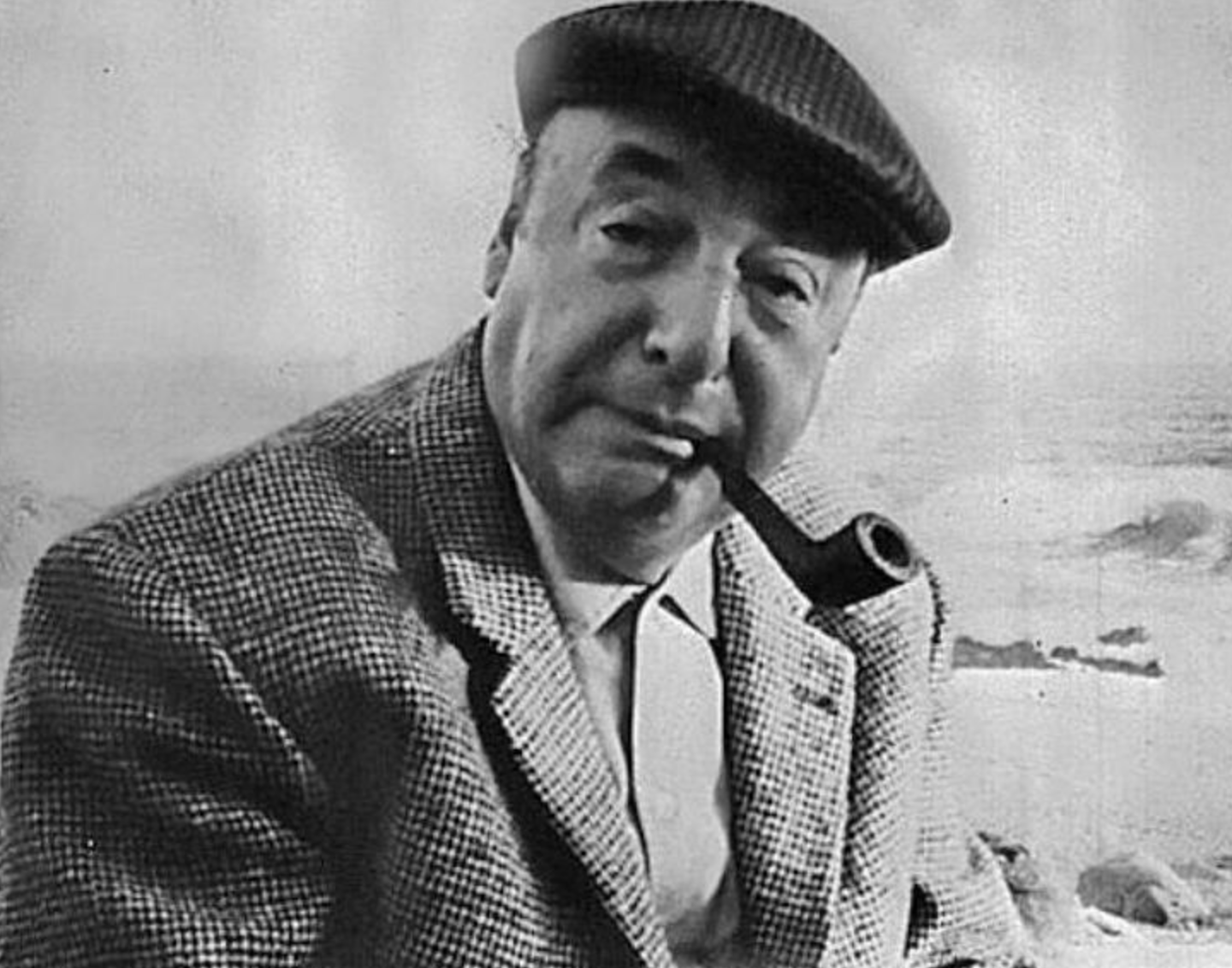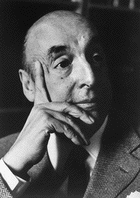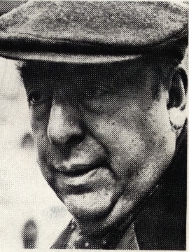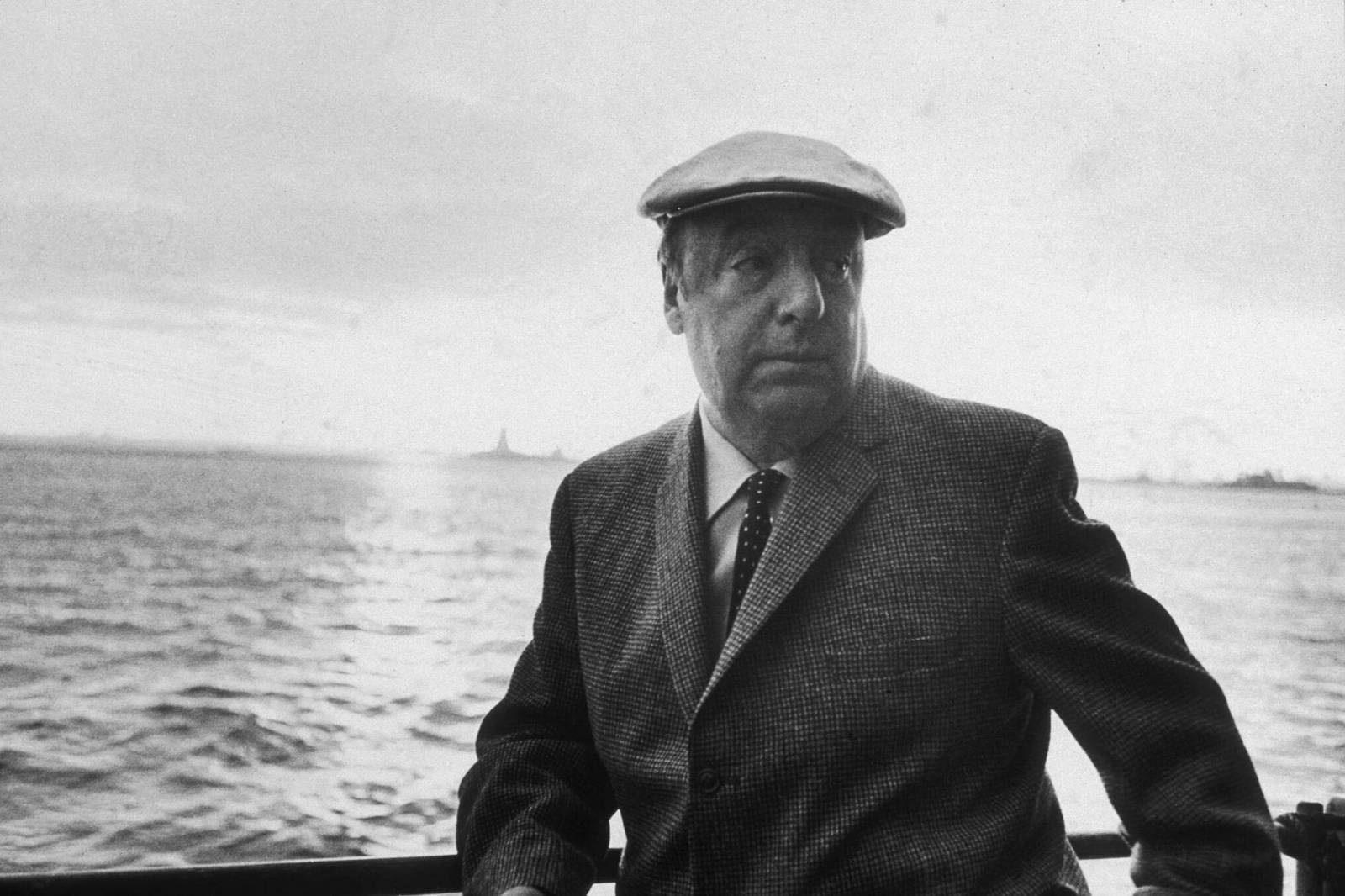"Nor To Know, Nor To Go, Nor To Return, With Our Eyes Closed, We Exist." - Pablo Neruda

Pablo Neruda, otherwise known as Neftalí Ricardo Reyes Basoalto, was
born on July 4, 1904 in Chile. His father worked as a railway employee
and his mother was a teacher. Unfortunately, his mother died shortly
after he was born.
When he was about thirteen, he started giving some of
his articles to the daily "La Manana". His first poem and publication
was "Entusiasmo y Perseverancia". Neruda recieved the pen name of "Pablo
Neruda" when he was a contributor to the literary journal "Selva
Austral". This name was chosen in rememborance of Jan Neruda (1834-1891)
who was a Czechoslovakian poet.
Neruda's first published book in 1923
was titled "Crepusculario". In 1924, his publication "Veinte poemas de
amor y una cancion desesperada" was released and became one of his most
popular and translated works. In 1933, he released a collection of
esoteric surrealistic poems, otherwise known as "Residencia en la
tierra".
There were two major events that affected Neruda strongly, the Spanish Civil War and the murder of a friend by the name
of García Lorca. From these events, he began working on a collection of
poems called "Espana en el Corazon". These poems were printed in the
middle of the front during the Spanish Civil war.
In 1939, when Neruda
was in South America, he re-wrote his "Canto General de Chile" and
turned it into an epic poem about South America. Soon, "Canto General de
Chile" was known as "Canto General" and then it was published and
translated into ten different languages. Another one of his other poems
that illustrated his political life when he returned to Chile in 1943 is
"Las Uvas y el Viento". Right after this he wrote "Odas elementales".
In 1971 Neruda was awarded the Nobel Prize in literature.
For more information, please see the Poetry Foundation Website.


